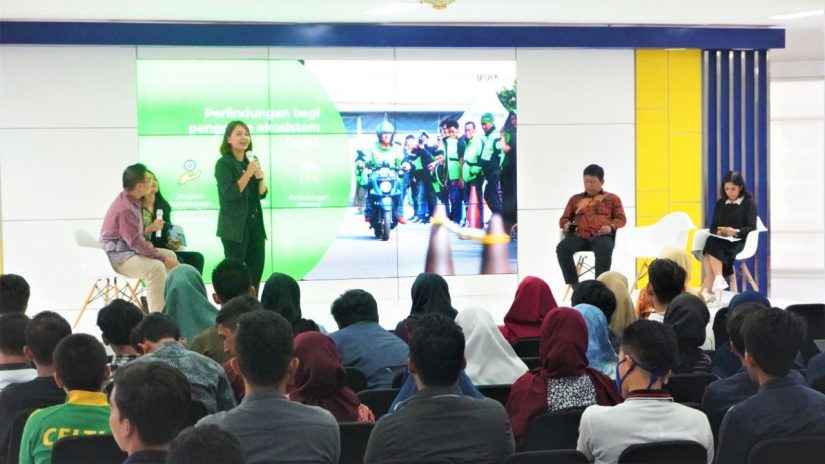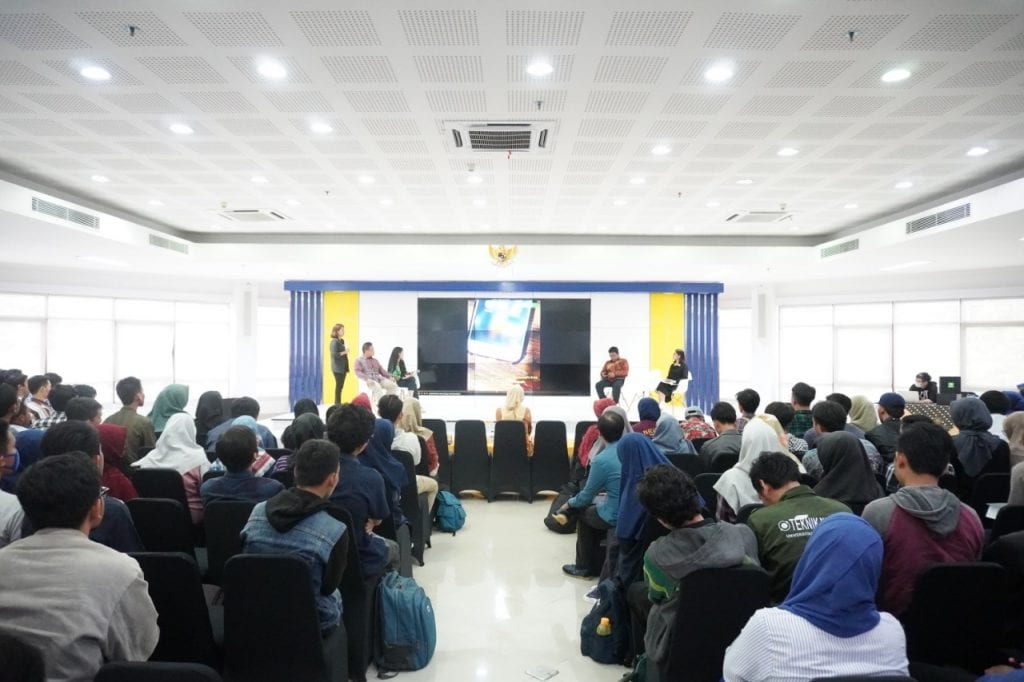
Yogyakarta, 12 March—Center for Digital Society (CfDS) cooperated with Gojek, Commission I of House of People’s Representatives of Republic Indonesia, and Ministry of Communication and Information Technology Indonesia in the event called Digitalk #38 on Thursday (12/3). This time, DigiTalk’s topic talked about the prevention of psychological manipulation and other crimes in digital world that arose along with the rise of digital services in Indonesia.
Aditya Hidayat as the Adjunct Researcher of CfDS explained that psychological manipulation (Magis) is a fraud with social engineering technique in digital era which exploited the psychological side of their service users. The main key of Magis itself is to accomplish certain emotional condition so that users are encouraged to do something or get fooled. One of Magis’s forms is personal identity theft by irresponsible people.

As one of the digital service companies, Gojek emphasized their commitment in protecting all of the partners and users from fraud and misuse of personal data through three pillars: education, technology, and protection. Education pillar is in the form of organizing events and seminars related to digital literacy in some cities. Technology pillar is in the form of advanced features in the application, such as number masking, intervention chat, emergency button that connected to customer care, share the trip, and fraud detection. Meanwhile, Gojek also has done various programs and insurance guarantee as the form of protection.
Senior Manager of Public Policy and Government Relations Gojek, Ardhanti Nurwidya, also added that Gojek’s efforts would not be succeeded without the support from their users. Users are expected to always be on alert and not sharing their one time password (OTP) to everyone outside of the Gojek application.
The efforts to improve the safety of these personal data also needs supports from the government. According to Meutya Hafid, the Head of Commission I of House of People’s Representatives of Republic Indonesia who also presented in this event, in this time the government is preparing the Personal Data Protection Bill to guarantee the security of the people in utilizing various digital services.
Other than that, another aspect that should be improved is digital literacy of the people. Educative seminar like DigiTalk is expected to raise public awareness and insight in using the digital services. “Technologies are developing very quick, therefore forums like this become very important. The college students are expected to be capable to disseminate the understanding of digital literacy to the people around us,” Meutiya said.
Slamet Santoso as the Director of Informatics Empowerment, Directorate General of Informatics Application, Ministry of Communication and Information Technology of the Republic of Indonesia, also emphasized the importance of digital literacy in the middle of Indonesian people. According to APJII in 2019, there were 171.17 million people in Indonesia that actively accessing the internet. This high-enough number needs to be balanced with the ability to access and process the internet and digital services properly. People are encouraged not to disseminate personal data or information, for the example in social media. Keep in mind that every activities in the digital world can not be erased and always leaves a trail.
Those efforts of course would be unsuccessful if they were only a one-sided responsibility. Therefore, it needs collaboration and cooperation from the people, technology industry, scholars, and government to create digital ecosystem that secure and comfortable in Indonesia.
